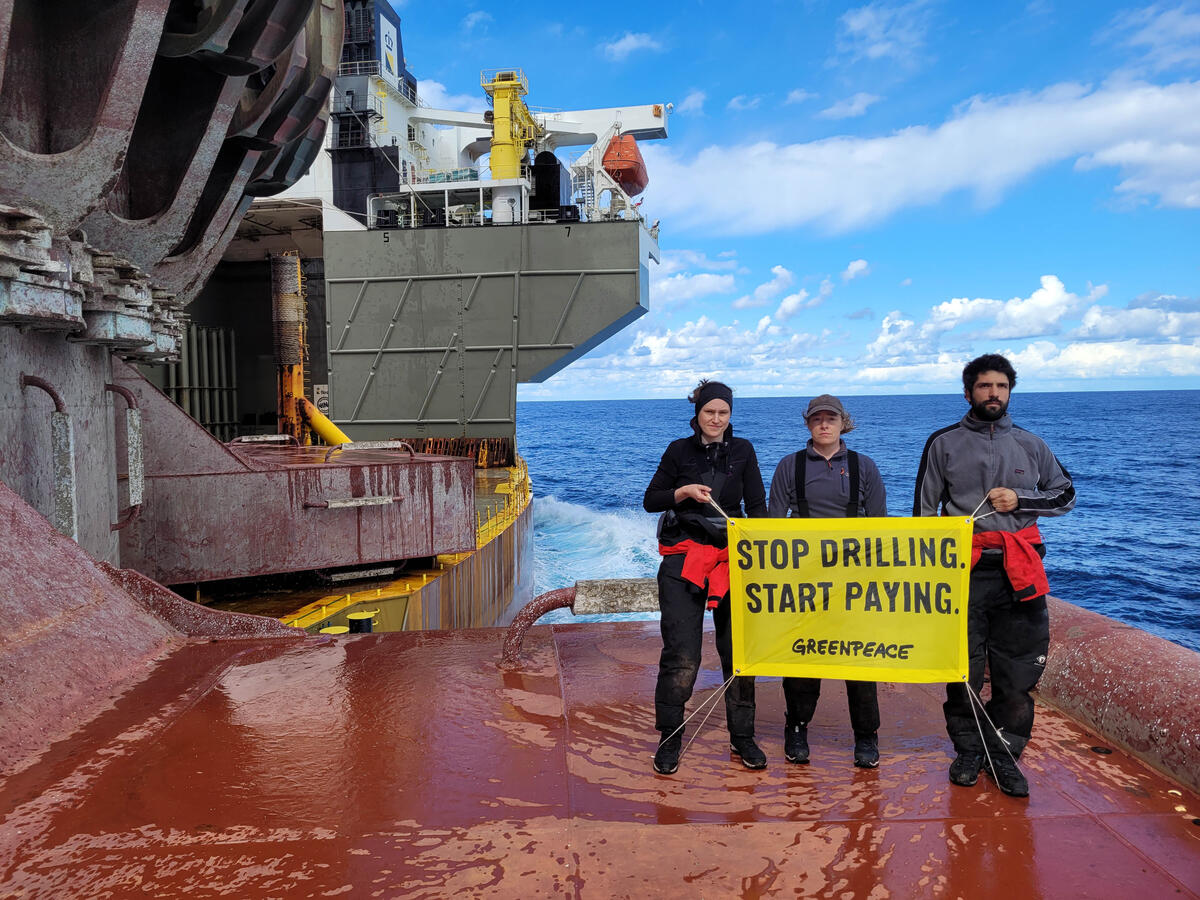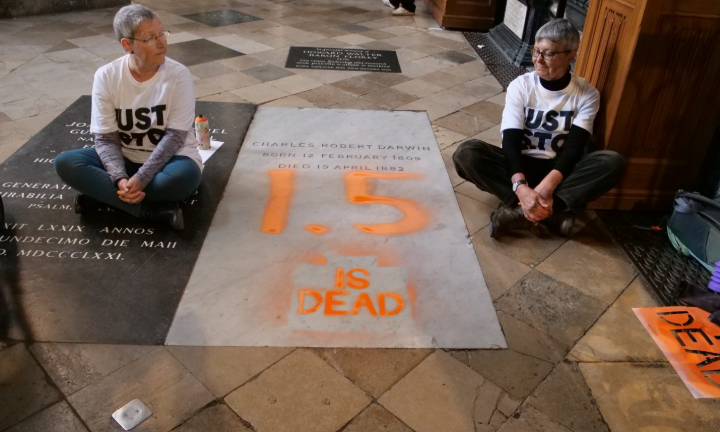Dutch oil company Shell is suing Greenpeace for millions of dollars in damages following a protest that occurred earlier this year. Shell is seeking $2.1 million in damages, which includes legal costs, added expenses for security, and costs incurred by shipping delays. The lawsuit, which has been filed in London’s High Court, threatens an $8.6 million damages claim and a protest ban against Greenpeace to silence climate demands.
Shell’s lawsuit is one of the biggest legal threats against Greenpeace. Earlier this year, six Greenpeace activists boarded a Boskalis heavy-lift ship transporting a Shell oil platform to the North Sea, which led to the lawsuit. The protest was one of the group’s most brazen demonstrations, with activists spending days aboard the vessel while at sea. Greenpeace UK later stated that the protest was the group’s longest-ever occupation of a moving oil platform.
The campaigners occupied Shell’s Penguins floating production storage and offloading [FPSO] unit for 13 days from January 31 to February 12. During that time, Shell announced record annual profits of nearly $40 billion.
Yeb Saño, the executive director of Greenpeace Southeast Asia, is no stranger to the devastating effects of typhoons caused by climate change. He volunteered to join Greenpeace International in the oil platform protest and is one of the activists named in Shell’s legal claim. Initially, he tried to board the platform and later protested its arrival at a Norwegian port.
Similar Posts
Greenpeace has stated that in their correspondence with Shell, the company has said that if Greenpeace does not agree to the proposal, it would seek damages claim of $8.6 million. However, Greenpeace has revealed that Shell offered to reduce the damages amount to $1.4 million if the environmental group agrees to not protest on its infrastructure again, either at sea or in port anywhere in the world. Greenpeace has agreed to this proposal if Shell agrees to stop contributing to climate change. Shell has stated that it respects the right to protest, but it must be done safely and lawfully.
A Dutch court has ordered Shell to cut emissions from its oil and gas by 45% by 2030, in response to a lawsuit filed by Friends of the Earth and over 17,000 co-plaintiffs. This unprecedented ruling mandates Shell to take significant action to reduce their carbon footprint. Meanwhile, Greenpeace has accused Shell of resorting to “aggressive legal tactics” to silence those who oppose CEO Wael Sawan’s decision to further invest in fossil fuels.
The negotiations between the parties have been completed, and legal costs are mounting since November 1 while Greenpeace is waiting for the details of Shell’s claim, also known as ‘particulars.’ Greenpeace criticized the “intimidation lawsuit,” saying it was one of the most significant threats in the organization’s protest history of over half a century.


















